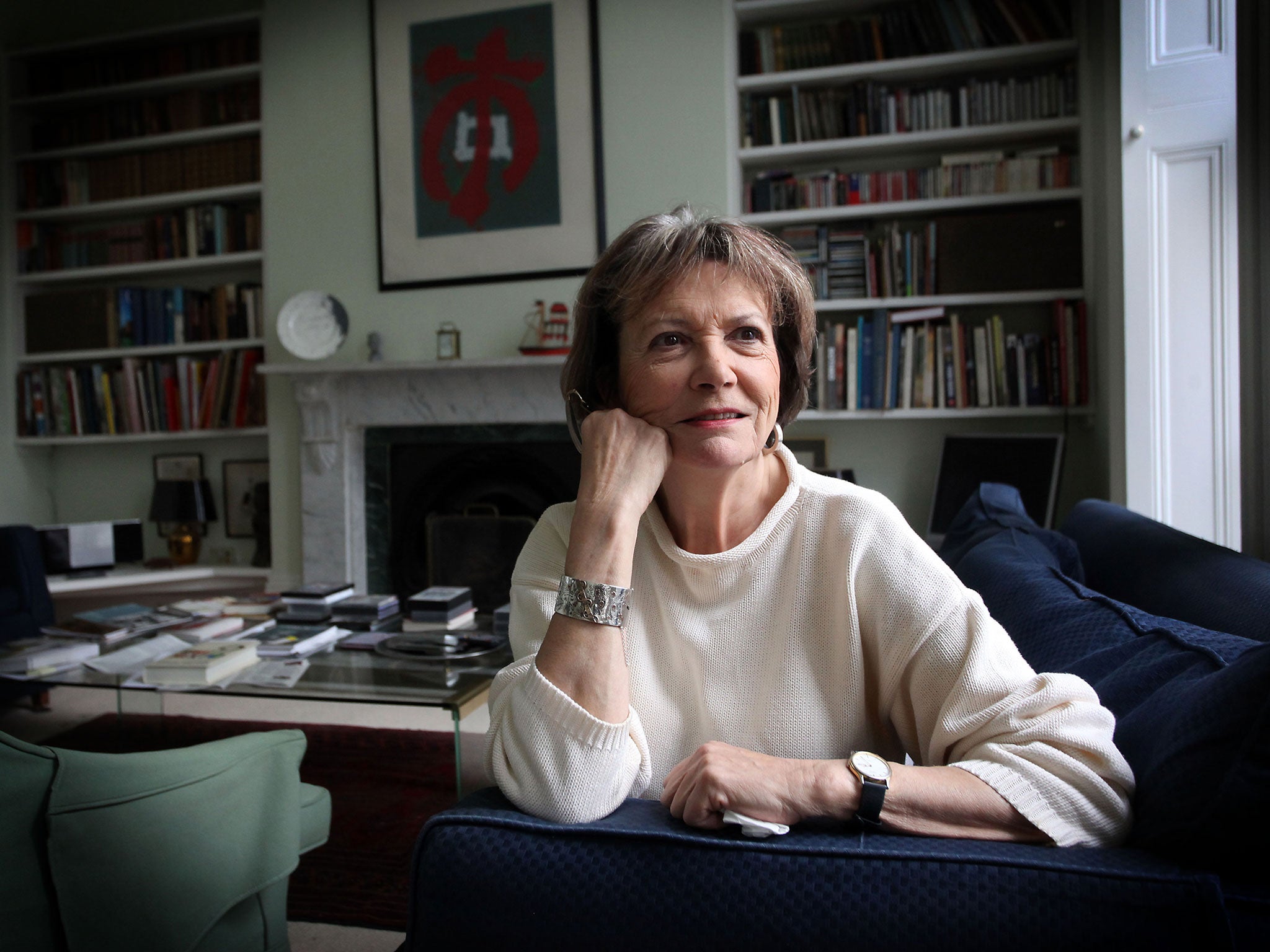Anorexia charities criticise Joan Bakewell for 'unhelpul' comments
Baroness Bakewell sparked controversy by claiming eating disorders arise from society becoming more narcissistic

Your support helps us to tell the story
From reproductive rights to climate change to Big Tech, The Independent is on the ground when the story is developing. Whether it's investigating the financials of Elon Musk's pro-Trump PAC or producing our latest documentary, 'The A Word', which shines a light on the American women fighting for reproductive rights, we know how important it is to parse out the facts from the messaging.
At such a critical moment in US history, we need reporters on the ground. Your donation allows us to keep sending journalists to speak to both sides of the story.
The Independent is trusted by Americans across the entire political spectrum. And unlike many other quality news outlets, we choose not to lock Americans out of our reporting and analysis with paywalls. We believe quality journalism should be available to everyone, paid for by those who can afford it.
Your support makes all the difference.Joan Bakewell has been criticised for “sweeping generalisations” by leading eating disorder charities following her “unhelpful” claims that anorexia stems from society becoming more narcissistic.
Baroness Bakewell sparked the controversy when she referred to eating disorders as a First World problem arising from a pre-occupation with image. In an interview with The Sunday Times, she said: “I am alarmed by anorexia among young people, which arises presumably because they are pre-occupied with being beautiful and healthy and thin.
“No one has anorexia in societies where there is not enough food. They do not have anorexia in the camps in Syria. I think it’s possible anorexia could be about narcissism.”
Her comments have angered charities offering support to sufferers. Andrew Radford, chief executive of B-eat, a UK charity offering support to those with eating disorders, said: “Eating disorders are something a lot of people have misunderstandings about and they make throw-away comments as if it’s something you choose to have. This sort of comment is not helpful.”
After being urged to take more care in discussing the subject, the broadcaster told one mother of an anorexia sufferer on Twitter: “It’s not your daughter who’s narcissistic: it’s the culture we live in.” A total of 2,965 children were treated for anorexia and other eating disorders such as bulimia on hospital wards last year, a rise of 12 per cent on 2014. Mr Radford said the reason there appeared to be a prevalence of anorexia cases among more developed nations was because health systems were more advanced and so mental health problems were better diagnosed and health data collection was vastly improved.
“It looks as though there is probably a genetic cause which is then triggered by a distressing event or trauma,” he said. “The concept it is some kind of lifestyle choice really doesn’t hold water with evidence we have got.” He added that anorexia “kills more people than any mental health problem”. Lady Bakewell made her comments ahead of the shortlist for Wellcome book prize being announced today. The six entries include several books, fiction and non-fiction, about mental illness, phobias and addictions and will be judged by a panel chaired by Lady Bakewell herself.
The 82-year-old, who grew up with rationing during the war years, said young people’s attitudes had changed with kids today “more introspective and body-conscious”.
Anorexia, she said, was “called hunger when we were young. You sat and ate until your plate was clean. Lots of young people worry about what shape they are; no-one did when I was growing up. To be unhappy because you are the wrong weight is a sign of the overindulgence of our society, over-introspection, narcissism, really.”
However, Anorexia and Bulimia Care’s chief executive Jane Smith pointed out it helps people with the disorder at all ages from 21 to 71 and far from being a modern ailment, it was a condition first diagnosed by Queen Victoria’s physician.
“Although our present culture might create more ‘fertile soil’ for an eating disorder to arise, it is all too easy to blame the media (including social media) for creating them. In fact they arise from a complicated interplay of social, genetic and neurological factors, triggered by issues such as abuse, often sexual abuse, relationship breakdown, bullying, stress and perfectionism causing higher levels of stress. I am disappointed that people still feel able to make sweeping generalizations and perpetuate the misconceptions.”
Kate Nightingale of Time to Change, the mental health anti-stigma campaign, said: “One in 10 young people will experience a mental health problem and eating disorders and self-harm are on the rise.”
Join our commenting forum
Join thought-provoking conversations, follow other Independent readers and see their replies
Comments